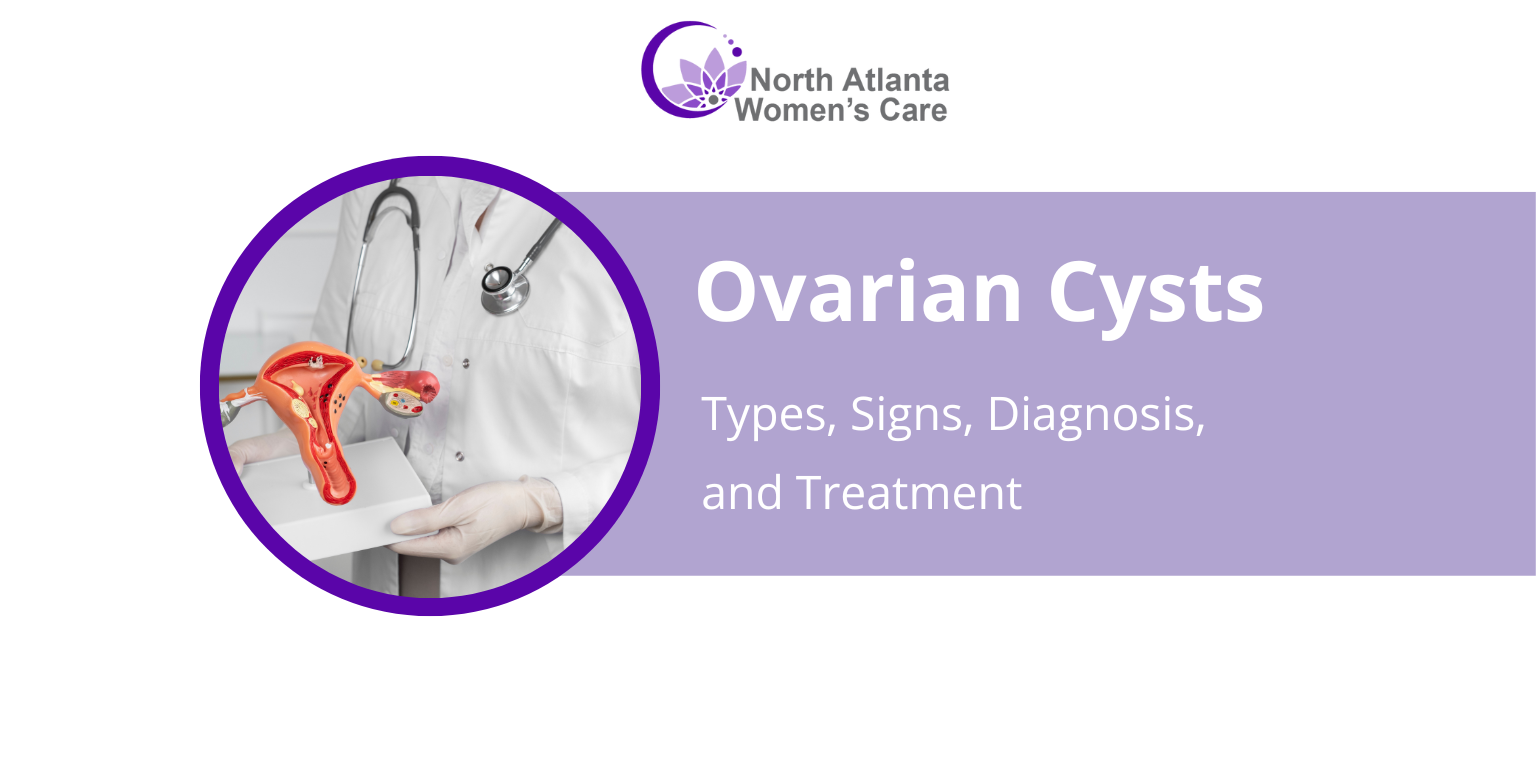Ovarian Cysts: Types, Signs, Diagnosis, and Treatment

The ovaries are a critical part of the female reproductive system, and all women have two ovaries on either side of their uterus. The eggs develop and mature in the ovaries which are then released once a month during the childbearing years. Occasionally, a solid or fluid-filled sac will develop on one of the ovaries, also known as an 'ovarian cyst'.
Many women worldwide are prone to developing cysts in their ovaries. While most cysts are painless and are not accompanied by any symptoms, those that grow bigger shouldn't be ignored.
Types of ovarian cysts and their duration:
The following are some common types of ovarian cysts:
1. Follicle Cyst
In every menstrual cycle, the ovaries release an egg that grows in a tiny sac called the follicle. When ready, the follicle opens and releases the egg. When the follicle doesn't open, it results in the formation of a follicle cyst that usually disappears in 1 to 3 months.
2. Corpus Luteum Cyst
After the egg is released, the follicle shrinks to its original shape to prepare for the next egg. However, a cyst develops if fluid gets collected inside the follicle. As the cyst grows, you may experience sharp pain and bleeding.
3. Polycystic Ovarian Syndrome (PCOS)
PCOS is a condition where you develop several tiny ovarian cysts, which can cause infertility and make it difficult for you to get pregnant.
Also, ovarian cysts that develop post-menopause are more likely to be cancerous.
Nine symptoms of ovarian cysts
You may have ovarian cysts if you experience one or more of the following symptoms:
- Pelvic pain: Most ovarian cysts cause pain in your lower belly, which can be sharp or dull depending on the stage or type and may recur for extended periods. The pain can intensify during your menstrual cycle.
- Bloating or swelling in the abdomen: Most women experience bloating during the menstrual cycle. However, watch out for unusual bloating, which can be due to a cyst growing in your ovaries.
- Nausea and vomiting: If the cyst becomes twisted or causes twisting (torsion) of the ovary, you may feel nauseous.
- Breast tenderness: Breast pain during the menstrual cycle is normal. However, unusual or irregular tenderness in your breasts may indicate ovarian cysts.
- Painful intercourse: If you experience sharp pain in your genital area or pelvic region before, during, or after sexual activity, chances are it is due to cysts in your ovaries.
- Fever: Ovarian cysts may cause infection resulting in fever.
- Unexplained changes in periods and bleeding: If you bleed on your non-menstrual days or notice a heavier or lighter flow than usual, you may have ovarian cysts.
- Dizziness, weakness, and feeling faint: If you experience unexplained dizziness, weakness, or feel faint, it can be due to the presence of cysts in your ovaries.
- Trouble getting pregnant: Women with PCOS or ovarian cysts may have trouble getting pregnant.
How are ovarian cysts diagnosed?
A routine pelvic examination can help diagnose the presence of ovarian cysts. Your doctor will check for swelling in the ovary and would recommend an ultrasound scan to confirm the presence of a cyst.
The test can be of two types:
- Using imaging tools
- CT- Scan
- MRI Scan
- Ultrasound device
Additional tests to confirm the cause of cysts:
- Pregnancy test
- Hormone level test
- CA-125 blood test
Treatment for ovarian cysts
Cysts usually disappear or reduce in size after 8-10 weeks. If there is no improvement, your doctor may prescribe oral contraceptives, which may not reduce the size of current cysts, but will decrease the chances of developing new ones. Surgery may be needed to remove any complex ovarian cysts.
If you are suffering from ovarian cysts or suspect you may have a cyst, contact us at North Atlanta Women's Care. We offer excellent medical support for all gynecological health concerns and can assess your ovarian cyst. Contact us today to learn more.
Comments are closed

